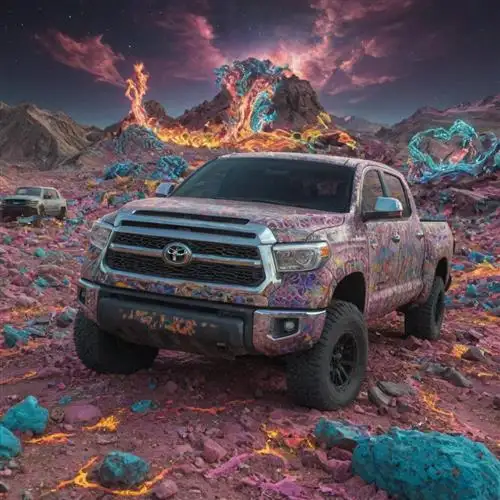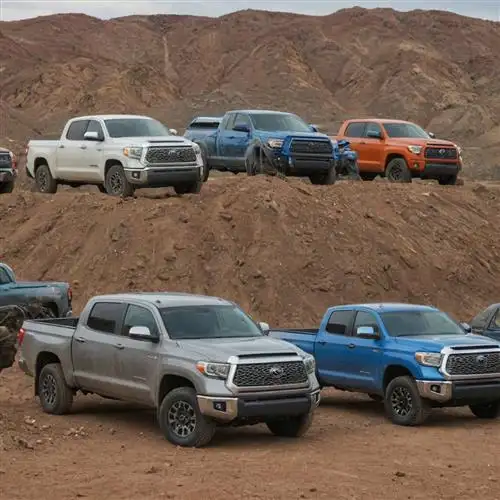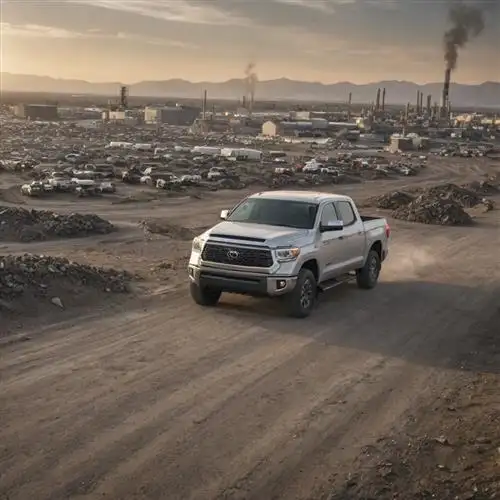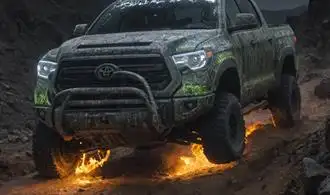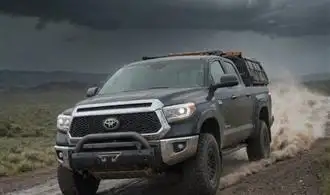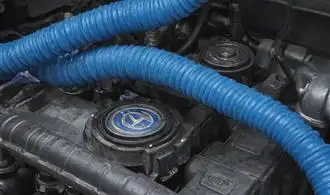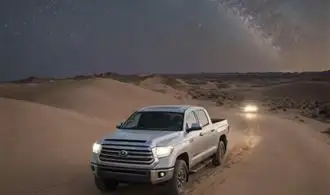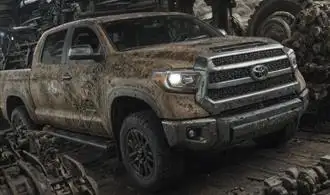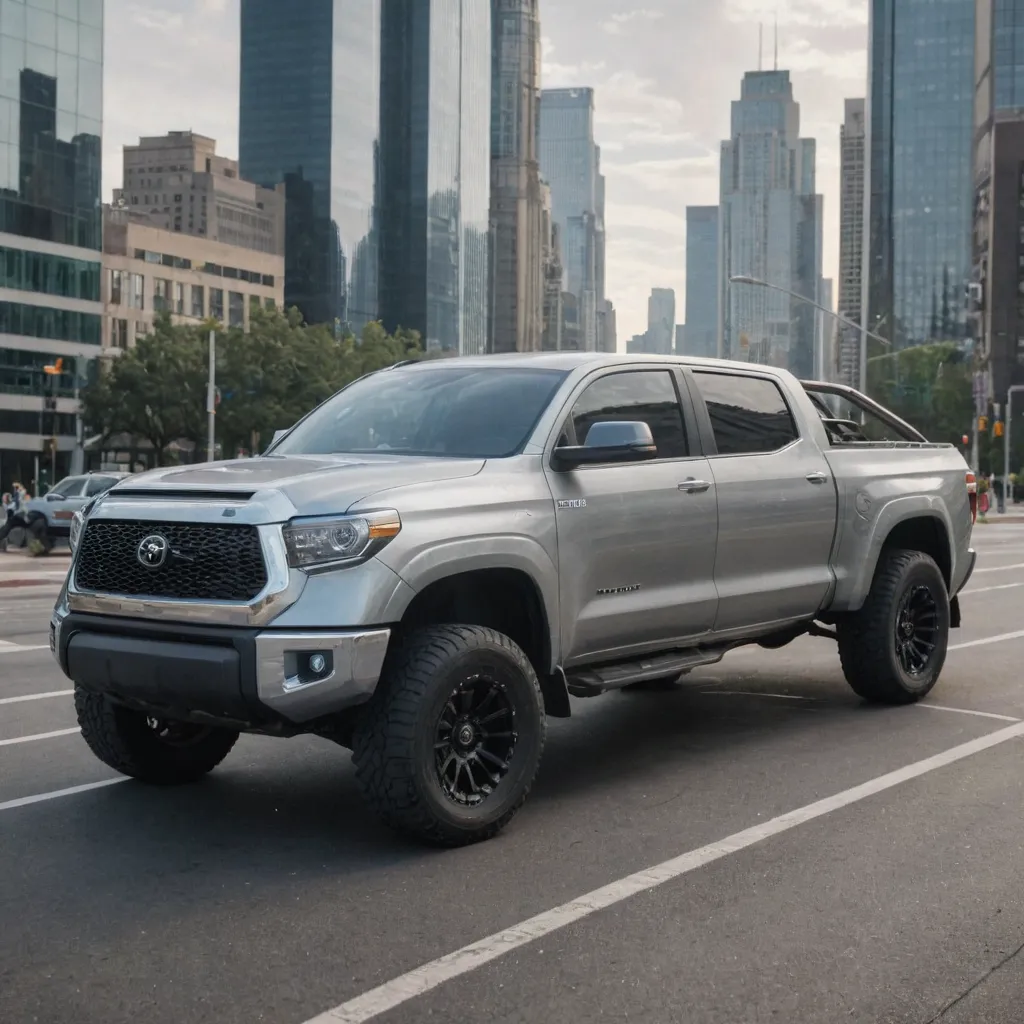
The Good the Bad and the Ugly of the Toyota Tundra
The Toyota Tundra, a full-size pickup truck, has long been a topic of discussion among automotive enthusiasts. Its combination of power, reliability, and versatility has made it a popular choice for many consumers. However, like any vehicle, the Tundra has its share of pros and cons, and it's essential to understand the "The Good, the Bad, and the Ugly" of this truck.
The Good: The Toyota Tundra is renowned for its robust construction and dependability. Its V8 engine options provide ample power for towing and hauling, making it a capable workhorse. The truck's off-road capabilities are also well-regarded, with available four-wheel-drive systems and advanced suspension components that can handle challenging terrain. Additionally, the Tundra's reputation for longevity and low maintenance costs are significant selling points for many buyers.
The Bad: While the Tundra's size and power are advantages, they can also be drawbacks. The truck's large dimensions can make it challenging to maneuver in tight spaces, and its fuel economy is not as impressive as some of its competitors. The Tundra's interior design and technology features may also feel outdated compared to more recently updated models from other manufacturers.
The Ugly: One of the most significant controversies surrounding the Toyota Tundra is its perceived lack of innovation and updates over the years. The current generation of the Tundra has been on the market since 2014, and some critics argue that Toyota has not done enough to keep the truck competitive with newer models from Ford, Ram, and Chevrolet. Additionally, reports of quality control issues and reliability problems have surfaced, which can impact the Tundra's reputation for dependability.
Controversies Surrounding the Toyota Tundra
The Toyota Tundra, the Japanese automaker's full-size pickup truck, has been at the center of several controversies over the years. From reliability concerns to ongoing battles with its American counterparts, the Tundra has faced its fair share of challenges in the highly competitive pickup truck market.
One of the primary controversies surrounding the Toyota Tundra is its perceived reliability issues. While Toyota is renowned for its dependable vehicles, the Tundra has been the subject of numerous complaints and reported problems, ranging from transmission failures to engine troubles. This has led some consumers to question the truck's long-term durability, especially when compared to the apparent reliability of rivals like the Ford F-150 and Chevrolet Silverado.
Another area of controversy is the Tundra's performance and capability compared to American-made pickup trucks. Despite Toyota's efforts to improve the Tundra's power and towing capacity, some critics argue that it still falls short of the benchmarks set by the domestic competition. This perception has been fueled by the Tundra's relatively lower horsepower and torque figures, as well as its inability to match the hauling and towing capabilities of its American counterparts.
The Tundra's pricing structure has also been a source of ongoing debate. While Toyota has positioned the Tundra as a premium, high-quality option, some consumers feel that the truck's price point is too high, especially when considering the features and capabilities of similarly equipped American-made pickups. This has led to accusations of Toyota pricing the Tundra out of the reach of many consumers, potentially limiting its market share in the highly competitive full-size pickup segment.
Finally, the Tundra's perceived lack of innovation and updates has been a point of contention for some enthusiasts. While Toyota has made incremental improvements to the Tundra over the years, the truck's design has remained largely unchanged since its introduction, leading some to argue that Toyota is not keeping pace with the rapid advancements and feature upgrades seen in the domestic pickup market.
Tundra Owners Speak Out
In the realm of full-size pickup trucks, the Toyota Tundra has carved a unique niche for itself, captivating the hearts and minds of loyal owners. However, the Tundra's journey has not been without its fair share of controversies, and it's time to delve into the unfiltered experiences of Tundra owners.
One of the most prominent issues raised by Tundra owners is the perceived reliability of the vehicle. While Toyota has long been renowned for its commitment to quality, some Tundra owners have reported recurring issues with their trucks, ranging from transmission problems to engine failures. These concerns have sparked a passionate debate within the Tundra community, with owners sharing their experiences and seeking resolutions.
Another point of contention is the Tundra's fuel economy. In an era where fuel efficiency is a primary consideration for many truck buyers, some Tundra owners have expressed disappointment with the vehicle's perceived underperformance in this area. This has led to discussions around the trade-offs between power, capability, and fuel efficiency, as Tundra owners grapple with finding the right balance for their needs.
Interestingly, the Tundra's design and styling have also been a subject of heated discussions among its owners. While some praise the truck's bold and rugged appearance, others have expressed a desire for a more modern or refined aesthetic. This divide in opinions highlights the diverse preferences and expectations of Tundra enthusiasts, who each seek to personalize their vehicles to reflect their individual tastes.
Furthermore, the Tundra's off-road capabilities have been a source of both praise and criticism. Some owners have lauded the truck's ability to tackle challenging terrain, while others have voiced concerns about its performance in certain off-road conditions. This has led to a deeper exploration of the Tundra's capabilities, as owners seek to understand the limits and strengths of their vehicles.
Despite these controversies, Tundra owners remain a passionate and dedicated community, united in their appreciation for the brand and their desire to see the Tundra continue to evolve and improve. Many have taken to online forums and social media platforms to share their experiences, offer suggestions, and engage in constructive dialogues with both fellow owners and Toyota itself.
The Tundra's Impact on the Automotive Industry
The Toyota Tundra has been a game-changer in the full-size pickup truck market, challenging the dominance of long-established American brands. Its introduction has had a significant impact on the automotive industry, shaping consumer preferences and forcing competitors to evolve their offerings.
One of the Tundra's most notable impacts has been its ability to appeal to a broader range of buyers. While traditionally, full-size trucks were primarily associated with work-oriented tasks, the Tundra has successfully bridged the gap between utility and lifestyle. Its combination of rugged capabilities, impressive towing and hauling capacities, and refined interior features has attracted a diverse customer base, including those seeking a versatile vehicle for both work and leisure activities.
The Tundra's success has also compelled other manufacturers to re-evaluate their truck lineups and make substantial investments in improving the design, technology, and performance of their own full-size offerings. This competitive pressure has led to a surge in innovation, with automakers introducing new features, enhanced powertrains, and more sophisticated infotainment systems to meet the evolving demands of truck buyers.
Moreover, the Tundra's reputation for reliability and durability has challenged the long-held perceptions about the superiority of American-made trucks. This has forced domestic automakers to focus on improving the quality and dependability of their products, further raising the bar in the full-size pickup segment.
The Tundra's impact extends beyond the truck market itself. Its success has also contributed to the broader shift in consumer preferences towards more fuel-efficient and environmentally conscious vehicles. Toyota's commitment to developing alternative powertrain options, such as the recently introduced hybrid variant, has inspired other manufacturers to explore ways to improve the fuel efficiency and emissions of their full-size trucks.
Predicting the Future of the Toyota Tundra
The Toyota Tundra has long been a staple in the full-size pickup truck market, renowned for its reliability, power, and versatility. As the automotive industry evolves, the future of the Tundra has become a topic of great interest among enthusiasts and industry analysts alike. Predicting the future of this iconic truck requires a deep understanding of the market trends, technological advancements, and the strategic direction of Toyota's product planning.
One of the key factors that will shape the Tundra's future is the ongoing shift towards alternative fuel sources and environmental sustainability. With the growing concerns over carbon emissions and the need to reduce the environmental impact of vehicles, Toyota is likely to explore the possibility of introducing hybrid or even all-electric variants of the Tundra. This move would not only align with the company's commitment to sustainability but also cater to the changing preferences of consumers who prioritize eco-friendly options in the full-size truck segment.
Another crucial aspect of the Tundra's future is its performance capabilities. As competitors continue to push the boundaries of power, towing capacity, and off-road prowess, Toyota will need to respond with significant updates and enhancements to the Tundra's underlying architecture. The Future of Toyota Tundra Performance is Here explores the potential for the Tundra to maintain its position as a top-tier performer in the full-size truck market.
Technological advancements will also play a pivotal role in shaping the Tundra's future. Features such as advanced driver-assist systems, infotainment systems with seamless connectivity, and over-the-air software updates will become increasingly important as consumers demand the latest and most sophisticated features in their vehicles. Toyota's ability to integrate cutting-edge technology into the Tundra will be a crucial factor in its continued success.
Furthermore, the competitive landscape in the full-size truck segment is evolving rapidly, with established players like Ford, Chevrolet, and Ram continuously introducing new models and innovative features. To stay ahead of the curve, Toyota will need to closely monitor market trends, anticipate consumer preferences, and make strategic investments in research and development to maintain the Tundra's position as a top-tier offering in the segment.

